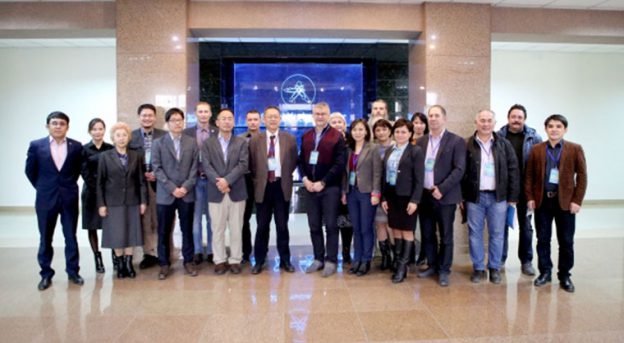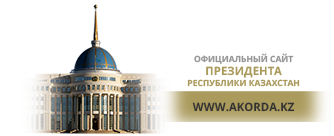JAEA-NNC RK радиоэкологияның қазіргі мәселелері жөніндегі семинары
03.11.2017

2017 жылғы 1-3 қараша аралығында ҚР ҰЯО РМК «Радиациялық қауіпсіздік және экология институты» филиалы радиоэкологияның қазіргі мәселелері жөнінде Жапонияның Атом энергиясы жөніндегі агенттігінің және Қазақстан Республикасы Ұлттық ядролық орталығының мамандарымен JAEA-NNC RK семинарын ұйымдастырған.
Семинардың бірінші күні жапон делегациясы мамандарының Ұлттық ядролық орталықтың және Радиациялық қауіпсіздік және экология институтының басшылығымен кездесуінен басталды. Ары қарай күн ССП мұражайына, Ұлттық ядролық орталық мұражайына экскурсиялармен, негізгі тәжірибелік әдістермен танысу үшін Институт корпустары мен зертханаларына, сонымен қатар, жұмыстардың далалық әдістерімен және тәжірибелік-эксперименттік телім «Фермерлік шаруашлықпен» танысу үшін «Тәжірибе даласы» алаңына экскурсиялармен жалғасты.
Іс-шараның екінші күні бас директордың радиоэкология жөніндегі орынбасары – РҚЭИ филиалының басшысы Сергей Лукашенконың кіріспе сөзімен және «Семей сынақ полигонының қазіргі кездегі ахуалы туралы» баяндамасын ұсынуымен басталды. Конференцияның ғылыми бағдарламасы шеңберінде 11 баяндама ұсынылды. Фукусиманың қоршаған орта қауіпсіздігі орталығының қызметкерлері цезийдің қоршаған ортада табиғи жұмылдырылуы, цезийдің орман жүйелерінде жылыстауы және «Фукусима Дайичи» АЭС жақын су жүйелеріндегі радио-цезийдің әрекеті, сонымен қатар, Фукусима аумағын ремедиациялауға арналған есептік моделдер жөніндегі баяндамаларды ұсынды.
Филиал қызметкерлері радиоактивті ластануға ұшыраған аумақтарды карталау үшін далалық гамма-спектрометрияны қолдану тәжірибесі бойынша, жасанды радионуклидтердің Семей сынақ полигонындағы және іргелес аумақтағы өсімдіктер мен мал шаруашылығы өнімдеріне өтуін зерттеудің негізгі нәтижелері бойынша, жасанды радионуклидтердің ССП жерасты және жербеткі сулармен жылыстауы бойынша баяндамалар ұсынды.
Күн соңында баяндамалар талқыланды, мұнда қонақтар Фукусима Дайичи станциясындағы ядролық апаттан және Семей полигонынан кейінгі радиациялық әсер етулер саласында ақпараттармен алмасулар арқылы серіктес болудың маңыздылығын атап көрсеткен.
Семинардың соңғы күні «Атом көлі» және «Дегелең» алаңын таныстыру экскурсиясына арналды.
Аталған сапар келешекте мүмкін болатын серіктестік сұрақтарын сәтті талқылаудың, сонымен қатар, бірлесіп іске асырылатын жобаның ағымдағы жағдайын талқылаудың үздік мүмкіндігі болды.








